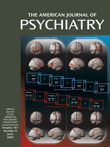Dr. Glatt and Colleagues Reply
To the Editor: In our article on the association between the COMT gene and schizophrenia, we identified the Val allele as a putative risk factor through meta-analysis. In characterizing this work as an attempt to “resurrect” and “manipulate” negative genetic studies to “obtain a desired result,” Dr. Pittelli highlights common misconceptions about meta-analysis and psychiatric genetics. Our methods are neither mystical nor underhanded; rather, they are widely recognized and commonly employed statistical tools for clarifying difficult research questions. The obtained result was not the “desired” result, although it was hypothesized on the basis of prior work. In meta-analysis, there is little one can do after establishing inclusion criteria (which in our study, we contend, were quite liberal and fair) to influence the results.
As Dr. Pittelli indicates, significant associations of schizophrenia with opposing alleles of the same polymorphism may indicate random error in the absence of a true effect, a possibility that we acknowledged (p. 470). However, we also recognized other possibilities. For example, individual studies may have had a low power to detect the true effect, or there may have been etiological heterogeneity within these samples (p. 470). As a result of our investigation, we simply found evidence favoring the latter two possibilities over the former one.
As highlighted by Dr. Volavka et al., parsing sources of variation in any putative genetic association is necessary to increase inferential power, especially when etiological heterogeneity is possible, as in schizophrenia. We discussed possible reasons for discrepancies between case-control and family-based studies (e.g., higher functioning of patients in intact trios, greater susceptibility of case-control studies to effects of population stratification [pp. 473–474]). Also, the scientific basis for ethnic differences in association with many phenotypes (including mental illnesses) is by now well established (1). Far from entering the realm of eugenics, we believe that it is essential to capitalize on important genetically mediated differences between subgroups of individuals in order to understand etiological differences between their forms of illness and their variable responses to specific treatments, interventions, or preventive measures.
Our purpose was not to resurrect negative studies to manufacture an association that does not exist but to overcome the individual limitations of these studies by increasing their collective power and reliability. From a survey of the literature published since our review, it appears that the findings of the meta-analysis were valid, as two of four subsequent studies of this association found significant evidence for an association of the Val allele with schizophrenia, while two other studies found no association (2–5). This type of fluctuation, with an overall tendency for association with the Val allele, is expected in the presence of a real but small underlying relationship, as not all studies will reliably estimate the true magnitude of the association. This further illustrates the need to conduct large studies or to pool evidence and generate more reliable estimates of genetic associations through meta-analysis.
1. Weber WW: Populations and genetic polymorphisms. Mol Diagn 1999; 4:299–307Crossref, Medline, Google Scholar
2. Herken H, Erdal ME, Boke O, Savas HA: Tardive dyskinesia is not associated with the polymorphisms of 5-HT2A receptor gene, serotonin transporter gene and catechol-O–methyltransferase gene. Eur Psychiatry 2003; 18:77–81Crossref, Medline, Google Scholar
3. Inada T, Nakamura A, Iijima Y: Relationship between catechol-O–methyltransferase polymorphism and treatment-resistant schizophrenia. Am J Med Genet 2003; 120B:35–39Google Scholar
4. Kremer I, Pinto M, Murad I, Muhaheed M, Bannoura I, Muller DJ, Schulze TG, Reshef A, Blanaru M, Gathas S, Goichman R, Rietschel M, Dobrusin M, Bachner-Melman R, Nemanov L, Belmaker RH, Maier W, Ebstein RP: Family-based and case-control study of catechol-O–methyltransferase in schizophrenia among Palestinian Arabs. Am J Med Genet 2003; 119B:35–39Google Scholar
5. Wonodi I, Stine OC, Mitchell BD, Buchanan RW, Thaker GK: Association between Val108/158 Met polymorphism of the COMT gene and schizophrenia. Am J Med Genet 2003; 120B:47–50Google Scholar



